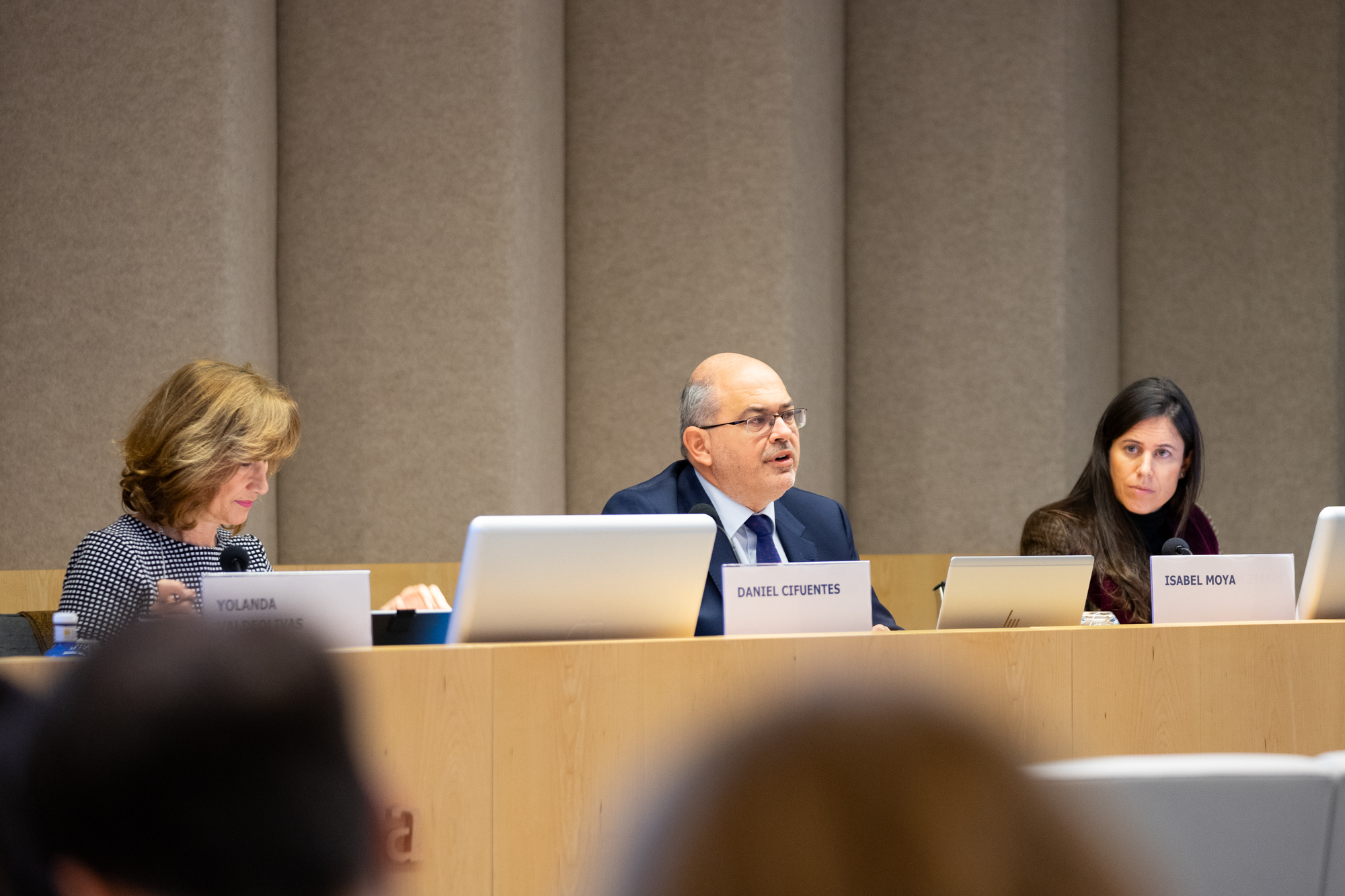Pérez-Llorca’s Employment, Compensation and Benefits practice area held a new ‘Pérez-Llorca Labour Law Update’ session with the participation of partners Daniel Cifuentes and Isabel Moya and Of Counsel Yolanda Valdeolivas, who discussed the main trends in the labour market for the coming months.
Daniel Cifuentes began the seminar by explaining the latest and most significant rulings from the Court of Justice of the European Union, the Spanish Supreme Court and the Spanish High Court. Cifuentes highlighted the Spanish Supreme Court ruling of 21 November 2023 concerning rights to work-life balance, in which the Court limits the distribution of the reduction in working hours to the structure of the ordinary working day “without being able to demand, except by mutual agreement, the conversion of the split working day into a continuous working day or the change of working hours or shift from a shift work system to a fixed shift”. The partner of the firm also pointed to the Supreme Court ruling of 12 December 2023, which rejects the possibility that, in single-parent families, the single parent may accumulate the childbirth benefit that would have corresponded to the other parent.
Then, following the usual ‘Pérez-Llorca Labour Law Update’ session format, Isabel Moya presented the top three most significant judgments from recent months. In first place was the Judgment of the Court of Justice of the European Union handed down on 18 January 2024, in which it ruled that the termination of the contract by the employer, under Article 49.1.e of the Workers’ Statute, when the cause is permanent incapacity due to a disability that has arisen during the employment relationship, without the employer being obliged to provide or make reasonable adjustments beforehand, is contrary to the objective of professional integration of people with disabilities, and to Article 5 of Directive 2000/78/EC.
To conclude the session, Yolanda Valdeolivas analysed the changes in employment regulations expected in 2024, such as the new grounds for invalidity in dismissals during leave or disability, the regulation of additional hours and the calculation of voluntary sick leave. Valdeolivas also pointed out the consequences for business of two new legislative developments. The first is the approval of the preliminary draft law for the transposition of Directive (EU) 2019/1152 of the European Parliament and of the Council of 20 June 2019 on transparent and predictable working conditions in the European Union, which gives workers a new right to predictability in working conditions, reinforces the obligation of the organisation to inform them in writing of these conditions and prevents hindering professionals from moonlighting. The second is the amendment to the Law Regulating Labour Courts, which stipulates, in Article 75.4, that in the event that a company does not attend settlement proceedings, a fine of between €180 and €6000 may be imposed, in addition to the costs.
